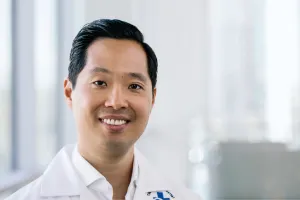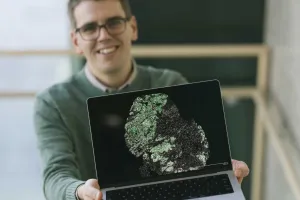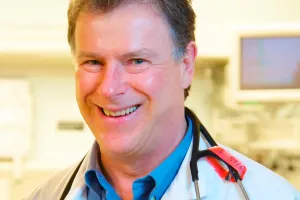Arginine supplement prevents cancer spread after surgery in mice, but more research in humans is required
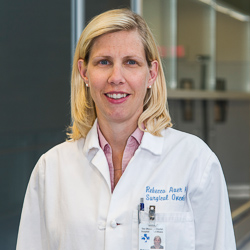 "We are working on a number of different strategies to reduce cancer recurrence after surgery and we won't stop until we've solved this" -Dr. Rebecca AuerTwo new papers from Dr. Rebecca Auer's group are shedding light on how cancer spreads after surgery and how we might stop it. While surgery often provides the best option for removing all or most of a tumour, Dr. Auer and others have shown that surgery also "stresses" the body in a way that can make it easier for any remaining cancer cells spread.
"We are working on a number of different strategies to reduce cancer recurrence after surgery and we won't stop until we've solved this" -Dr. Rebecca AuerTwo new papers from Dr. Rebecca Auer's group are shedding light on how cancer spreads after surgery and how we might stop it. While surgery often provides the best option for removing all or most of a tumour, Dr. Auer and others have shown that surgery also "stresses" the body in a way that can make it easier for any remaining cancer cells spread.
In a paper in Molecular Therapy, Dr. Auer and her team show that surgical stress in mice causes the level of arginine - a natural amino acid - to plumet, but enriching the mouse food with supplemental arginine corrects this problem and prevents their cancer from spreading after surgery. They showed that this effect was linked to innate immune cells called Natural Killer (NK) cells, which need arginine to fight cancer, and that it is also apparent in the blood of cancer patients after surgery.
The second paper, published in Annals of Surgical Oncology, looked at whether arginine-supplemented "milkshakes" could improve post-operative arginine levels and NK cell function in a randomized trial in 24 patients with colorectal cancer. While there was a modest improvement in NK cell cytotoxicity after surgery, this wasn't considered enough to make a significant difference. Future research may focus on optimizing arginine delivery, as arginine levels remained low after surgery and some patients had trouble taking all of the supplements after their surgery.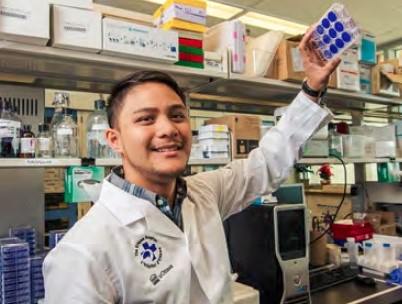 "It was amazing to be able to move this project forward from lab discovery to clinical trial. It was particularly rewarding to meet many of the patients who participated in the trial."- Dr. Leonard Angka
"It was amazing to be able to move this project forward from lab discovery to clinical trial. It was particularly rewarding to meet many of the patients who participated in the trial."- Dr. Leonard Angka
"We are working on a number of different strategies to reduce cancer recurrence after surgery and we won't stop until we've solved this," said Dr. Auer, surgical oncologist, senior scientist and director of cancer research at The Ottawa Hospital and professor at the University of Ottawa.
"It was amazing to be able to move this project forward from lab discovery to clinical trial," said Dr. Leonard Angka, who led both papers as part of his PhD with Dr. Auer. "It was particularly rewarding to meet many of the patients who participated in the trial. We are so thankful for their contributions."
Funding and support: This research was funded by the Canadian Institutes of Health Research, the, Cancer Research Society, the Terry Fox Research Institute, The Ottawa Hospital Academic Medical Organization, the Canadian Association of General Surgeons and the Cancer Research Society. Trial reagents were provided as in-kind support from ATGen Canada/NKMax and Enhanced Medical Nutrition. Dr. Auer holds a T1 Clinical Research Chair on Perioperative Cancer Therapeutics from the Department of Surgery, Division of General Surgery, and the University of Ottawa. All research at The Ottawa Hospital is also enabled by generous donors to The Ottawa Hospital Foundation.
The Ottawa Hospital is a leading academic health, research and learning hospital proudly affiliated with the University of Ottawa and supported by The Ottawa Hospital Foundation.
Learn more about:
The Ottawa Hospital is a leading academic health, research and learning hospital proudly affiliated with the University of Ottawa and supported by The Ottawa Hospital Foundation.
